Nestled within the serene village of Oakington, Cambridgeshire, lies an ancient burial ground that offers a window into the lives and deaths of Early Anglo-Saxon inhabitants. Discovered over multiple excavation seasons, this cemetery has yielded invaluable insights into the customs, practices, and hardships of a bygone era. From accidental encounters with modern infrastructure to poignant glimpses of burial rites, the Anglo-Saxon Cemetery of Oakington serves as a poignant reminder of the human experience across centuries.
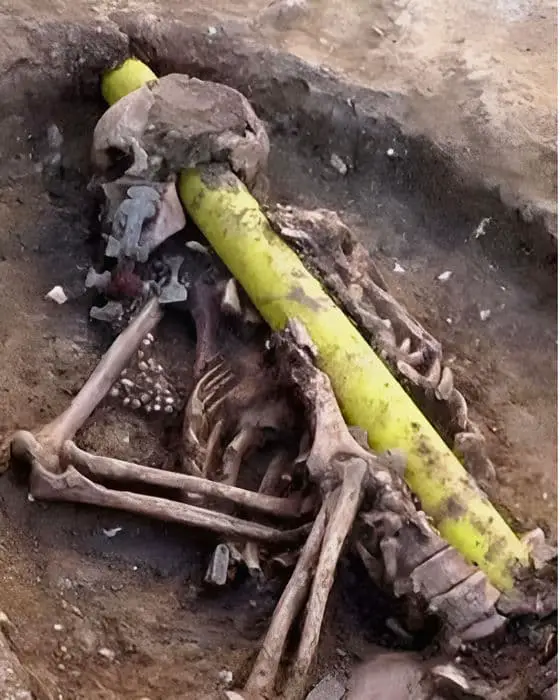
Why Explore Oakington’s Anglo-Saxon Cemetery?
As an enthusiast of archaeology and history, my journey led me to the hallowed grounds of Oakington’s Anglo-Saxon Cemetery. Here are five compelling reasons why this archaeological site warrants exploration:
- Ancient Discoveries: Delve into the past as you unearth the remains of over 100 Anglo-Saxon skeletons dating back to the 6th century. From burial rites to grave goods, each discovery sheds light on the lives and customs of Early Anglo-Saxon society.
- Modern Encounters: Witness the intersection of ancient history and modern infrastructure as archaeologists uncover skeletons inadvertently pierced by a gas pipe. Explore the challenges of preserving archaeological sites amidst contemporary development.
- Cultural Heritage: Immerse yourself in the rich cultural heritage of Oakington’s Anglo-Saxon community through the artifacts and remains unearthed at the cemetery. Discover the significance of burial practices and grave goods in shaping beliefs and traditions.
- Archaeological Excavations: Trace the history of archaeological investigations at Oakington, from early discoveries in the 20th century to recent excavations in the 21st century. Explore the methodologies and challenges faced by archaeologists in uncovering the secrets of the past.
- Historical Insights: Gain valuable insights into the daily lives and experiences of Early Anglo-Saxon residents through the analysis of burial patterns, grave goods, and skeletal remains. Explore the social, economic, and health conditions of this ancient community.
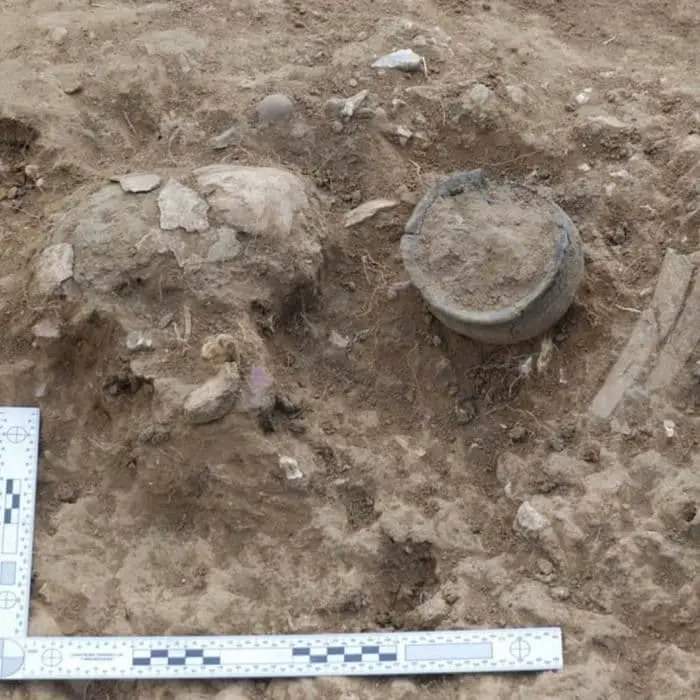
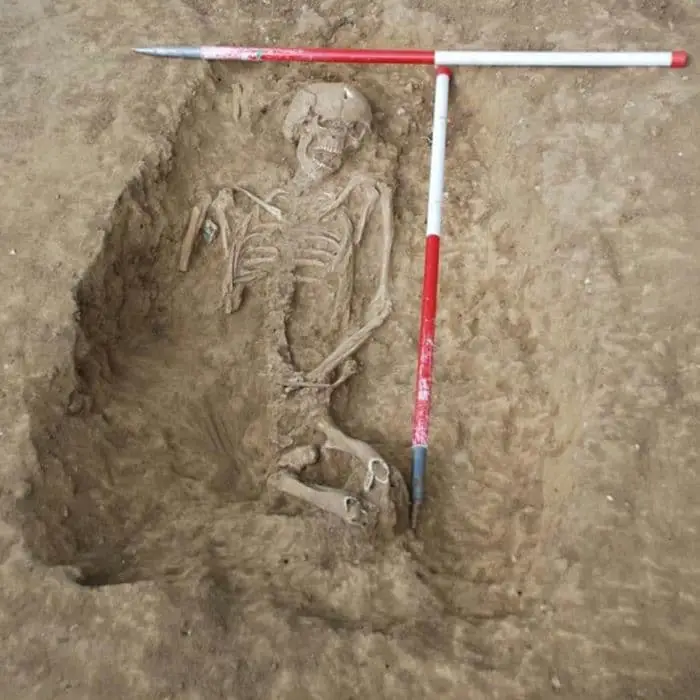
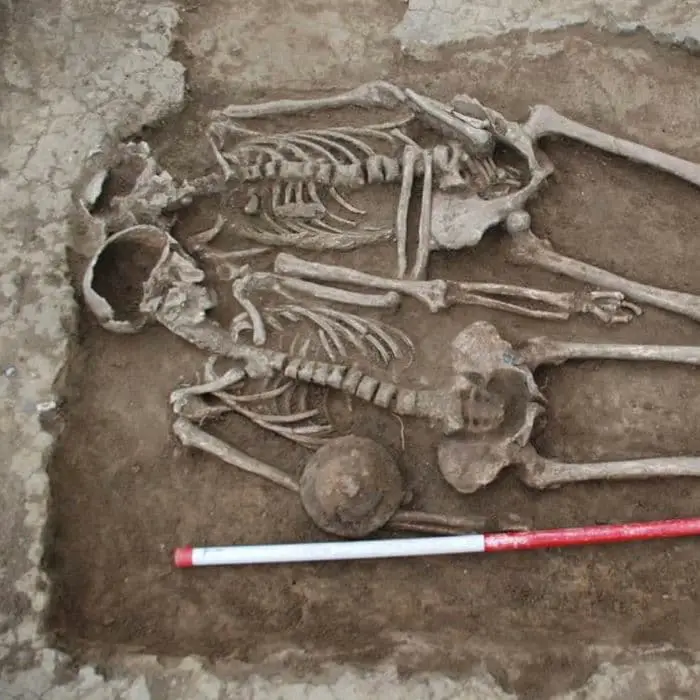
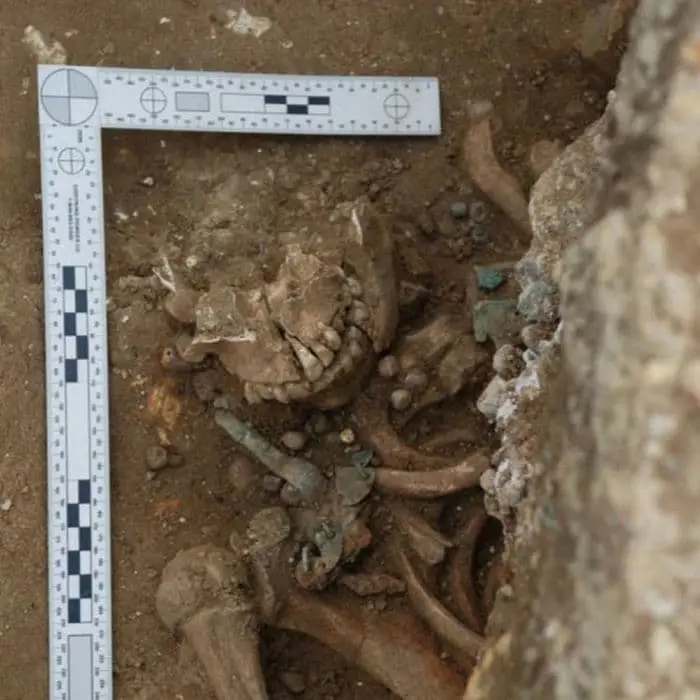

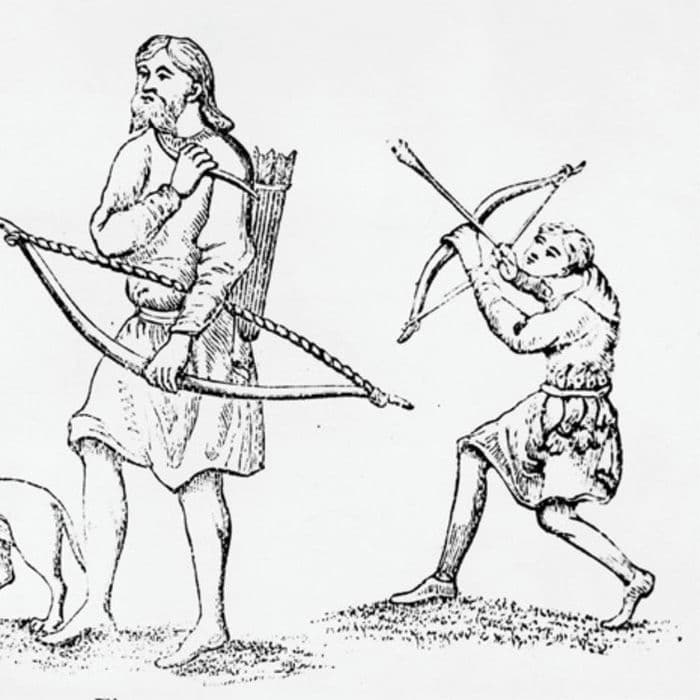
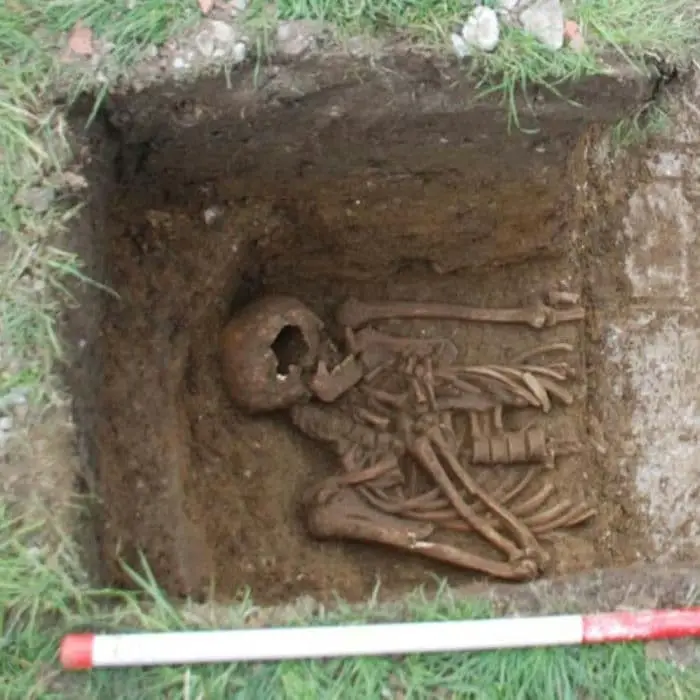
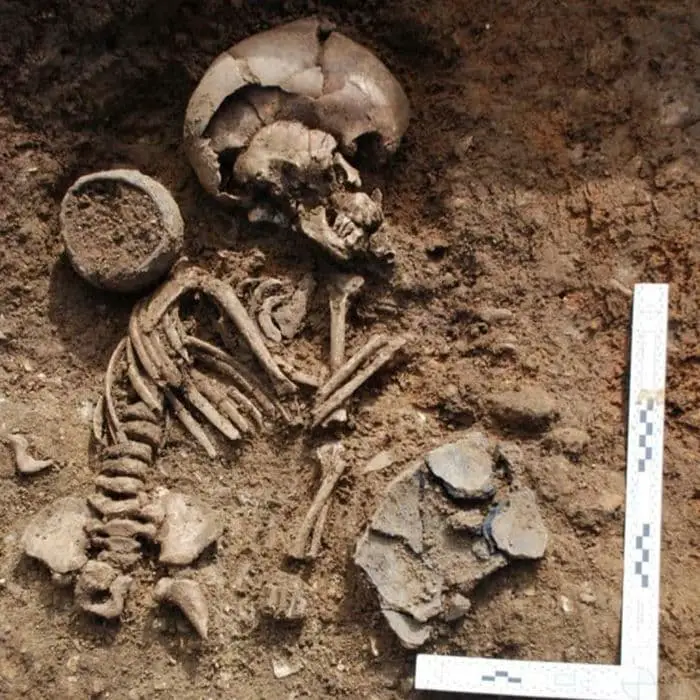
Frequently Asked Questions:
- What is the history of Oakington’s Anglo-Saxon Cemetery?
The cemetery dates back to the Early Anglo-Saxon period (c. 420–660), with over 200 graves unearthed during archaeological excavations. Evidence suggests the presence of a contemporary settlement, offering a comprehensive view of Early Anglo-Saxon life. - How were modern infrastructures inadvertently involved in the excavation process?
During excavation, archaeologists encountered a gas pipe that had been drilled through an ancient burial, highlighting the challenges of preserving archaeological sites amidst modern development. Despite precautions, such encounters underscore the complexities of archaeological preservation. - What insights have been gleaned from the graves discovered at Oakington?
Analysis of the graves reveals high rates of infant mortality, indicative of the harsh realities faced by Early Anglo-Saxon inhabitants. Grave goods and burial practices offer valuable insights into social structures, religious beliefs, and cultural traditions of the time. - What archaeological methods were employed in excavating the cemetery?
Excavations at Oakington utilized a combination of geophysical sensing, test pits, and full-scale excavations to uncover graves and artifacts. These methods allowed archaeologists to systematically explore the site while minimizing disturbance to the surrounding area. - What significance does Oakington’s Anglo-Saxon Cemetery hold for archaeological research?
Oakington’s cemetery provides a wealth of data for archaeological research, offering insights into various aspects of Early Anglo-Saxon life, including demography, health, and burial practices. As a well-preserved site, it serves as a valuable resource for scholars and enthusiasts alike.
As visitors and researchers alike delve into the mysteries of Oakington’s Anglo-Saxon Cemetery, they embark on a journey of discovery and understanding, unraveling the intricacies of the past and its enduring impact on the present. With each excavation, new insights emerge, enriching our appreciation of the human experience across time and space.
